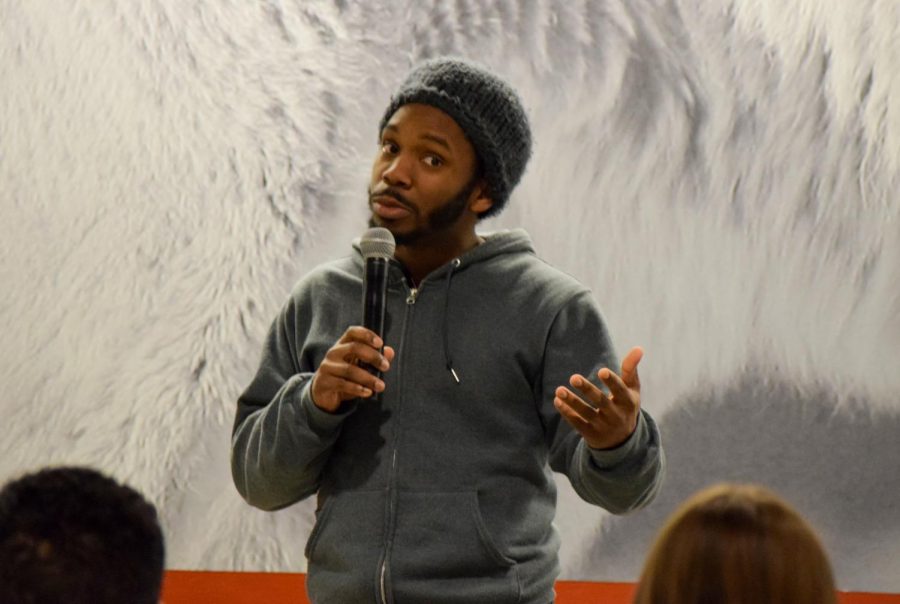Amplifying Black student voices in public school
Zoom event host gave advice to future teachers on how to ‘spread joy’
MICHAEL LINDER | DAILY EVERGREEN FILE
WSU professor Amir Gilmore spoke at a WSU Common Reading event about his involvement in the Science & Technology Entry Program at Albany High School. STEP is an afterschool program that supports students of color.
October 25, 2020
One WSU professor shared with future educators his passion for spreading joy and encouragement in the classroom.
Amir Gilmore, WSU assistant professor of cultural studies and social thought in education, hosted a Zoom event Oct. 22 to talk about “Black Boy Joy,” a Common Reading book about young Black boys in education.
“Boyhood never stops,” Gilmore said. “It influences who I am, and it helps propel me forward in my research.”
He worked in an after-school program called Science & Technology Entry Program at Albany High School, as well as an Advancement Via Individual Determination teacher during the day. The main focus of the program is to work with underrepresented youth and connect them with STEM programs, Gilmore said.
The goal of STEP is to help students academically and emotionally. Some students wanted to go to four-year colleges, community colleges or trade schools. Gilmore helped them with whatever they needed, he said.
Gilmore said he taught a variety of students in the program, including homeless students, students in abusive homes or low-income students.
“If they wanted to talk or vent, I was there to listen,” Gilmore said. “Most times, they just wanted to play UNO. So we played a lot of UNO.”
Karlee Self, WSU elementary education major, asked for advice during the event as an incoming teacher who wants to support success in young Black children.
“Listen and nurture,” Gilmore said. “Many Black children don’t get that from teachers, and if that’s an issue, parents need to address it. As a teacher educator, I am trying to teach future teachers that these conversations don’t need to be confrontations.”
When Gilmore was working on his doctoral dissertation, his main focus was on censorship of Black joy and anti-Black culture.
If Black students are gifted, they are shown off on a pedestal. However, average and below-average students are pushed along in schools and not encouraged, Gilmore said.
“When you Google ‘Black boy,’ the only things that pop up are negative. Nothing focuses on their joys and accomplishments,” Gilmore said. “With those negative ideas popping up, it’s hard to change people’s views. We don’t support or nurture them in that way.”
Black people are often refused in most ways. Gilmore said they are told they need to cut their hair, like DeAndre Arnold, to blend in better. Arnold was a Texas high school student who was prohibited from attending school in the Barbers Hill Independent School District for wearing dreadlocks longer than the dress code.
“‘You’ll get your freedom later in life’ is something I heard a lot growing up,” Gilmore said. “No! I want freedoms and pleasures now.”
Gilmore said he wants to help teachers learn that Black children should not be denied their joys, and they need to be encouraged and nurtured.










